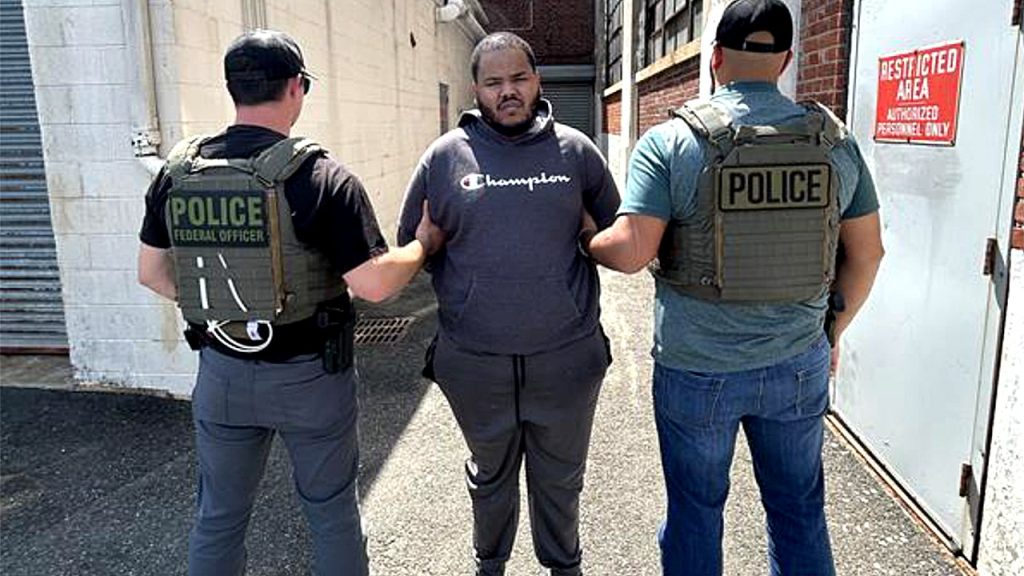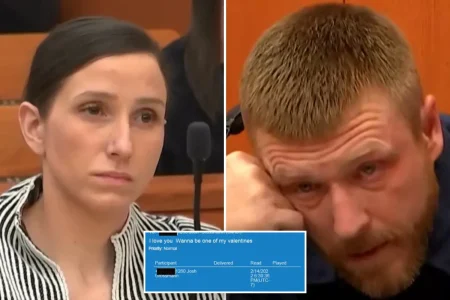ICE Criticizes NYC’s Sanctuary Policies After Child Predator’s Release
In a concerning example of the tensions between federal immigration enforcement and local sanctuary policies, U.S. Immigration and Customs Enforcement (ICE) has publicly criticized New York City after the NYPD released a Dominican national charged with serious child sex offenses. Robert Reid Mendez Jimenez, who had been arrested on charges of sexual misconduct with a child under 11 years old, was released from local custody despite ICE having issued an immigration detainer requesting that he be held for federal authorities. This case highlights the ongoing national debate about sanctuary jurisdictions and public safety, particularly when it involves individuals accused of serious crimes against vulnerable populations like children.
The situation unfolded when NYPD arrested Jimenez on multiple sexual abuse charges, including sexual conduct with a child under 11 years old. Despite the severity of these allegations, city officials reportedly ignored ICE’s detainer request, allowing Jimenez to walk free. This decision aligns with New York City’s sanctuary policies, which limit cooperation between local law enforcement and federal immigration authorities. Following his release, ICE Enforcement and Removal Operations officers in Newark, New Jersey, had to track Jimenez down through intelligence operations before finally taking him into custody. This additional effort required federal resources that might have been unnecessary had the detainer been honored initially.
ICE officials expressed frustration with the circumstances, with ERO Newark acting Field Office Director Ruben Perez stating, “This case shows the real cost of ignoring ICE detainers: Violent offenders walk free, and public safety is put at risk.” Perez commended his team for apprehending Jimenez and “removing a dangerous predator from the streets within weeks of his release into the community.” According to ICE, Jimenez had been under a final removal order since July 2018 after entering the United States illegally and will remain in ICE custody until his removal from the country. This timeline suggests that the individual had already been ordered deported years before his recent arrest on the child abuse charges, adding another layer to the controversy surrounding his case.
The situation in New York City reflects broader tensions across the country regarding immigration enforcement and local governance. Attorney General Pam Bondi has recently taken a more aggressive stance against sanctuary jurisdictions, sending “demand letters” giving them one week to comply with federal immigration laws or face Justice Department action. She has specifically warned that jurisdictions “putting illegal immigrants ahead of citizens” would face lawsuits if they refuse to cooperate with federal authorities. Meanwhile, New York City Mayor Eric Adams has found himself caught between these federal demands and local policies, previously stating, “I have nothing to do with the rules that are put in place. I just carry out the rules.” This illustrates the complex political position many local officials find themselves in when navigating immigration enforcement responsibilities.
The debate extends beyond this single case, touching on broader questions about public safety and jurisdictional authority. Homeland Security Secretary Kristi Noem has criticized Adams specifically for New York City’s sanctuary laws, while Adams has reportedly worked with border czar Tom Homan on immigration enforcement issues, suggesting some level of cooperation despite the city’s official policies. The controversy occurs against a backdrop of reported increases in NYPD retirements following Democratic socialist Zohran Mamdani’s June primary win, indicating potential strain within law enforcement circles. Critics of sanctuary policies argue cases like Jimenez’s demonstrate how such approaches can endanger communities, while defenders maintain these policies are necessary to maintain trust between immigrant communities and local authorities.
As this case demonstrates, the intersection of immigration enforcement, local governance, and public safety remains contentious across America. The fundamental questions at stake involve balancing responsibilities to enforce immigration laws against local communities’ authority to determine their own law enforcement priorities. While federal officials argue that honoring detainers for individuals accused of serious crimes should transcend political differences on immigration, sanctuary jurisdictions often counter that maintaining clear separation between local policing and federal immigration enforcement serves broader public safety goals by encouraging immigrant cooperation with law enforcement. What’s clear is that in cases involving serious allegations like those against Jimenez, the consequences of these policy disagreements become far more than theoretical, potentially affecting real community safety and highlighting the urgent need for workable solutions that protect the public while respecting jurisdictional boundaries.










